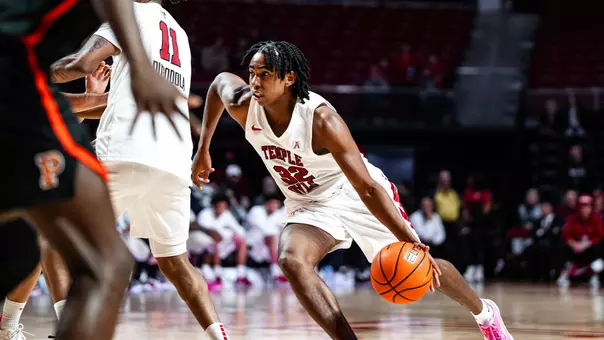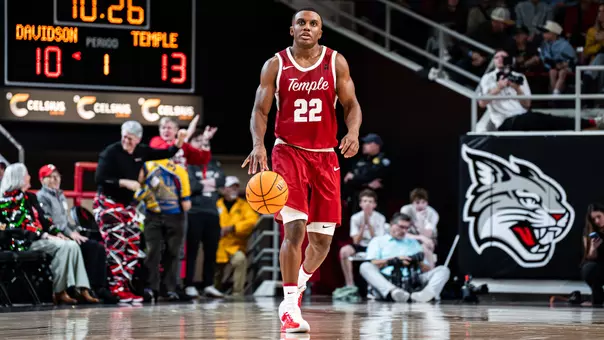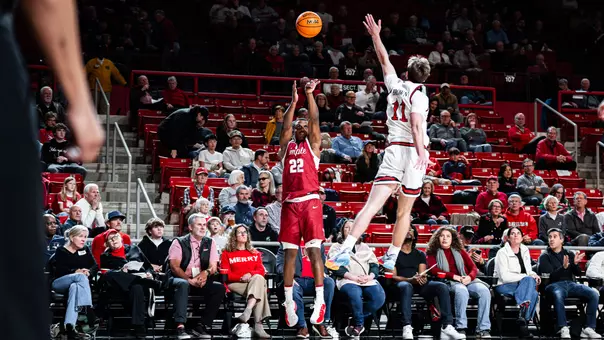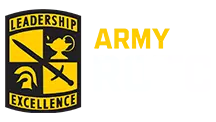Temple University Athletics

A Band of Brothers: 1969 NIT Championship Team Revisited
1.13.19 | Men's Basketball
Temple's run to the 1969 NIT title will always be one of the most memorable snapshots in the timeline of one of the country's more storied programs. Yet the irony is that the Owls almost never got the opportunity to make that moment happen. Not once, but twice.
"When people look back, that's the part they don't remember," said the team's best player, senior forward John Baum. "But it's the truth."
The landscape was much different back then. Only 25 teams made it into the NCAA Tournament, which UCLA and senior Lew Alcindor – who took the name Kareem Abdul-Jabbar three years later – would win for the third straight season in the middle of the John Wooden dynasty. And only one team from a conference was allowed to go. The NIT had a 16-team field, with all of the games being played at Madison Square Garden. The Owls – who won the inaugural invitational in 1938 -- had lost their NIT opener the year before. After dropping an NCAA first-round game in 1967.
Hall of Fame coach Harry Litwack had taken five previous teams to the NIT, which was a much bigger deal in those days. The following year Marquette and Al McGuire would even turn down the NCAA because of a seeding disagreement and go on to win the NIT. Of course Litwack had also gone to the Final Four in 1956 and '58. But he'd never made it past the quarterfinals of the NIT. That was about to change, even if few had any real inkling that things were about to get historic.
On March 1 the Owls lost the Middle Atlantic title game at the Palestra to Saint Joseph's, by a point in overtime, on a tip-in at the buzzer by sophomore John Connolly.
"We had every reason to believe we'd win that game," recalled the other starting senior forward, Joe Cromer, the second-leading scorer behind Baum. "I was standing right there. He just kind of swatted at it.
"We thought our college careers had come to an abrupt, unexpected end. We'd beaten them up pretty bad (by 20 on Jan. 18, also in West Philly). There was a picture the next day in the paper. I still have it somewhere. John and me had the same dejected look. We were pretty sure it was over. I didn't think our record would be good enough to get us in the NIT."
But they did, as likely the last team in, in large part thanks to Litwack's presence/relationships.
"Coach would never admit it, although he might have intimated it, but with all my heart I believe he either reached out or got taken care of by one of his friends," acknowledged Cromer, a South Jersey native who still lives there in retirement. "He had those connections. There were any number of teams they could have taken. I don't think a lot of people were too happy that we got in. We were incredibly lucky. But having Harry in was never a bad thing.
"I don't remember how we found out, exactly. I do know we had to wait for almost a week to find out. I went to the first practice (after that) like we had a stay of existence. I was just so glad to be in the locker room. I never thought I'd see it again."
Naturally, conventional wisdom didn't give them much of a chance to do any serious damage with their reprieve.
Even, at least at first, from within.
"We had five seniors who thought they'd played their last game, and lost it the way we did," said Baum. "But (assistant) coach (Don) Casey came in and said he'd looked at the field and thought we could win some games, maybe even go all the way. In reality I think we were saying no way. But I was the captain. I had to be positive. So maybe I just drank the Kool-Aid. It became, 'Why not?' But we knew what we were up against. The one thing was we played a lot of zones, and we played them well. And a lot of teams weren't used to that. They were used to man-to-man. So we took advantage of that."
Casey, who was in his third season on the staff, would take over four years later. Litwack would go to the NCAA in 1970 and '72. But that was his last NIT.
"I mean, Harry was so well respected," said Casey, who lives in San Diego, where he once coached the Clippers. "When you look back at it now you're like, 'Holy crap.' But we had some good players, and one real good one. And we played together. Harry was a unique human being. He didn't seek out the luster.
"They were the original band of brothers. And it still is. Very united. And it just all came together for us at the right time."
The 50th anniversary of that legendary group will be celebrated/honored at Saturday's game against Penn at the Liacouras Center.
The 1968-69 season saw LaSalle lose only once. But the second-ranked Explorers, still considered maybe the best team ever in the Big Five (Kenny Durrett, Larry Cannon), couldn't play in the postseason due to NCAA probation. St. Joe's went to the four-letter tourney and lost to Duquesne. Independent Villanova, with 21 victories (and soph Howard Porter), also went and lost to Davidson. Neither game was close. The Wildcats had beaten Temple on Feb. 22, by seven. But the image that remains is the Owls' improbable two-week journey. And that's indelible.
"Who knows what would have happened if we'd beaten St. Joe," said Baum, who worked at his alma mater for decades and is now the long-time color analyst on its radio broadcasts. "I do think about that. We might have lost our first-round game, playing somebody wherever. If not, we probably would've lost the next one. And that's it.
"But now we were going to the mecca of college basketball. We were just happy to be there. And then we started focusing on Florida. We took the train up. That was a big deal, instead of bussing. But I don't remember if we stayed over in the hotel or came right back. We didn't care.
"Because we got a second chance, to this day they still talk about us. It's remarkable really. It never stops."
Added Cromer: "How many teams in the city win titles? Before or since. It's special.
"We were a band of misfits. We were the stepchildren in the Big Five behind LaSalle and Villanova. We had one legit big-time player. He was probably the only guy on our team who could play today. But it didn't matter."
The Owls had five other players who averaged between seven and 11 points. And it seemed like whenever they needed a contribution, somebody provided it. Not always the same guys. But Baum was the constant. He was the program's all-time leading rebounder until Lavoy Allen came along some four decades later. And Allen played four seasons. Baum played when freshmen were still ineligible for the varsity.
Florida had Neal Walk, who averaged 24 points and 17 rebounds. He would be taken second in the NBA draft, behind Alcindor. The Owls won 82-66.
"I remember a lot of Florida fans had come up, because they thought they were going to be there for awhile," Baum duly noted, with a laugh. "That must have been a long trip home. I don't think we would have been welcomed in Gainseville."
Next up was St. Peter's, from right across the river in New Jersey with star Elnardo Webster, who'd been the darlings of the '68 NIT when it reached the semifinals. The final was 94-78, on St. Patrick's Day in New York.
"Can you imagine that?" Baum went on. "We beat them as a team, but I was determined not to let (Webster) beat us. And he didn't. I always wanted to play my best against the best."
"John went crazy," Cromer said. "He scored like 31. Just killed him."
That meant the Owls got to go back for the semis.
"We were going to get four days up there," Cromer said. "That was a pretty exciting proposition."
The Owls took out Tennessee, 63-58. That left Boston College, and retiring coach Bob Cousy, a New England icon. The Eagles had won 17 in a row. They had big man Terry Driscoll. And they'd beaten Bobby Knight's Army club two days earlier.
The Owls, who trailed at halftime, used a 25-7 spurt in the second half – a rally that was ignited by Baum blocking a Driscoll shot – and won going away, 89-76.
"We went from just being relieved that we were still playing and thanking God I could even just practice again to getting a trophy," Cromer said. "You can't make something like that up.
"We didn't fear BC as much as we had maybe Florida or Tennessee. They weren't a great shooting team. And (the late) Eddie (Mast) played out of his mind (at center). They were shocked. The expression on their faces, it was like their dog had died. They loved Cousy, and they wanted to win it for him. But I knew how they felt, because that's what we looked like after St. Joe's."
Turns out there was only one thing that got in the way. That's when they found out that Driscoll, and not Baum, had been named the Most Valuable Player, in a vote that was taken with about eight minutes to go.
"To us, it was a foregone conclusion," Cromer explained. "We were happy, but when they announced Driscoll, we all looked over at John. I said to Eddie, 'I can't believe it.' It took the air out of our ball, for sure."
"I look at it this way," said Baum. "I don't know how many people remember who got the MVP. But every year in the program when they list the NIT champions, our name is on it. So I've been blessed.
"Cousy was just standing there with his arms crossed. I remember Harry walking over to shake his hand, smoking his (victory) cigar and everything, but it was hard. I guess we weren't supposed to win. But by that point, it was no surprise. We thought we were better."
And a half-century later, the magic of that ride and all that went with it belongs to them and them alone.
As it should.
"In those days the press wasn't as much into making prognostications," said Casey. "We had come up a little short of our goal, which was always to try and win 20 games and see where that could take us from there. But for whatever reasons, we were able to make something out of that disappointment (of losing the MAC final).
"It's hard to believe it's been a half-century. Wow. I even forgot that we beat Florida in the first game. A couple of years earlier I was coaching high school (at Bishop Eustace), and now I was in the NIT finals. It was like Disney World. And above everything else, we thought of ourselves as a Big Five team first. That was our mindset. The links were very strong …
"When you get to an elderly age, there's a lot to look at in the rearview mirror. When you're 40, there's a lot of miles ahead. Now, you never know how many are left. But the one thing is, that group will always have each other. And that experience we shared."
And that will never go away.
"It doesn't seem like that long ago to me," Cromer said. "But it is kind of hard to wrap your mind around it being 50 years. And almost all of the guys are still around (Litwack and freshman Carl Brooks have also passed).
"I'm sure when we see each other (this weekend) it'll be just like when we were playing. We'll laugh. We'll bust each other's chops. We'll remember Eddie. It sounds corny, but we really were that band of brothers. So we're getting the band back together. You never know how many more times we'll get to do this. That's the part that's hard to talk about."
But talk they will. And reminisce. And tell stories. And maybe even shed a tear. And lift a glass to toast the memories. Especially of the ones who are no longer with them.
And it will be good. They've earned as much. And more.
"I was a second-round pick of the Bulls, and a first-round pick in the ABA (by the Los Angeles Stars)," Baum summarized. "And I played in the league. But none of that compares to what we did. And I sincerely mean that. That's why we're going to make the most of this (reunion).
"To be honest, I get letters all the time from people thanking me. I answer them all. I got some from guys who fought in Vietnam who watched the (BC) game and were so proud of Temple. And these were not Temple alums. Some people love the underdog. One guy even said that team helped get him through the war. Amazing.
"I can always say that if something happens to me, good or bad, the headline will say 'John Baum, captain of the 1969 Temple team that won the NIT.' Captain. Think about that. God's been good to me. If another Temple team had won a championship since then, and I really thought they would with all the Elite Eight teams John (Chaney) had, we'd be on the backburner. But it's not that easy.
"We played (BC) in the afternoon (on March 22nd), and later that day UCLA won the NCAA," he continued. "That's how it was then. Like two hours apart. They were both nationally televised. The next day the headline in the paper said, 'UCLA and Temple wins national championships.' In bold letters. I have that in my scrapbook. You talk about something that was recognized … "
And cherished. For as long as they play the game.
"When people look back, that's the part they don't remember," said the team's best player, senior forward John Baum. "But it's the truth."
The landscape was much different back then. Only 25 teams made it into the NCAA Tournament, which UCLA and senior Lew Alcindor – who took the name Kareem Abdul-Jabbar three years later – would win for the third straight season in the middle of the John Wooden dynasty. And only one team from a conference was allowed to go. The NIT had a 16-team field, with all of the games being played at Madison Square Garden. The Owls – who won the inaugural invitational in 1938 -- had lost their NIT opener the year before. After dropping an NCAA first-round game in 1967.
Hall of Fame coach Harry Litwack had taken five previous teams to the NIT, which was a much bigger deal in those days. The following year Marquette and Al McGuire would even turn down the NCAA because of a seeding disagreement and go on to win the NIT. Of course Litwack had also gone to the Final Four in 1956 and '58. But he'd never made it past the quarterfinals of the NIT. That was about to change, even if few had any real inkling that things were about to get historic.
On March 1 the Owls lost the Middle Atlantic title game at the Palestra to Saint Joseph's, by a point in overtime, on a tip-in at the buzzer by sophomore John Connolly.
"We had every reason to believe we'd win that game," recalled the other starting senior forward, Joe Cromer, the second-leading scorer behind Baum. "I was standing right there. He just kind of swatted at it.
"We thought our college careers had come to an abrupt, unexpected end. We'd beaten them up pretty bad (by 20 on Jan. 18, also in West Philly). There was a picture the next day in the paper. I still have it somewhere. John and me had the same dejected look. We were pretty sure it was over. I didn't think our record would be good enough to get us in the NIT."
But they did, as likely the last team in, in large part thanks to Litwack's presence/relationships.
"Coach would never admit it, although he might have intimated it, but with all my heart I believe he either reached out or got taken care of by one of his friends," acknowledged Cromer, a South Jersey native who still lives there in retirement. "He had those connections. There were any number of teams they could have taken. I don't think a lot of people were too happy that we got in. We were incredibly lucky. But having Harry in was never a bad thing.
"I don't remember how we found out, exactly. I do know we had to wait for almost a week to find out. I went to the first practice (after that) like we had a stay of existence. I was just so glad to be in the locker room. I never thought I'd see it again."
Naturally, conventional wisdom didn't give them much of a chance to do any serious damage with their reprieve.
Even, at least at first, from within.
"We had five seniors who thought they'd played their last game, and lost it the way we did," said Baum. "But (assistant) coach (Don) Casey came in and said he'd looked at the field and thought we could win some games, maybe even go all the way. In reality I think we were saying no way. But I was the captain. I had to be positive. So maybe I just drank the Kool-Aid. It became, 'Why not?' But we knew what we were up against. The one thing was we played a lot of zones, and we played them well. And a lot of teams weren't used to that. They were used to man-to-man. So we took advantage of that."
Casey, who was in his third season on the staff, would take over four years later. Litwack would go to the NCAA in 1970 and '72. But that was his last NIT.
"I mean, Harry was so well respected," said Casey, who lives in San Diego, where he once coached the Clippers. "When you look back at it now you're like, 'Holy crap.' But we had some good players, and one real good one. And we played together. Harry was a unique human being. He didn't seek out the luster.
"They were the original band of brothers. And it still is. Very united. And it just all came together for us at the right time."
The 50th anniversary of that legendary group will be celebrated/honored at Saturday's game against Penn at the Liacouras Center.
The 1968-69 season saw LaSalle lose only once. But the second-ranked Explorers, still considered maybe the best team ever in the Big Five (Kenny Durrett, Larry Cannon), couldn't play in the postseason due to NCAA probation. St. Joe's went to the four-letter tourney and lost to Duquesne. Independent Villanova, with 21 victories (and soph Howard Porter), also went and lost to Davidson. Neither game was close. The Wildcats had beaten Temple on Feb. 22, by seven. But the image that remains is the Owls' improbable two-week journey. And that's indelible.
"Who knows what would have happened if we'd beaten St. Joe," said Baum, who worked at his alma mater for decades and is now the long-time color analyst on its radio broadcasts. "I do think about that. We might have lost our first-round game, playing somebody wherever. If not, we probably would've lost the next one. And that's it.
"But now we were going to the mecca of college basketball. We were just happy to be there. And then we started focusing on Florida. We took the train up. That was a big deal, instead of bussing. But I don't remember if we stayed over in the hotel or came right back. We didn't care.
"Because we got a second chance, to this day they still talk about us. It's remarkable really. It never stops."
Added Cromer: "How many teams in the city win titles? Before or since. It's special.
"We were a band of misfits. We were the stepchildren in the Big Five behind LaSalle and Villanova. We had one legit big-time player. He was probably the only guy on our team who could play today. But it didn't matter."
The Owls had five other players who averaged between seven and 11 points. And it seemed like whenever they needed a contribution, somebody provided it. Not always the same guys. But Baum was the constant. He was the program's all-time leading rebounder until Lavoy Allen came along some four decades later. And Allen played four seasons. Baum played when freshmen were still ineligible for the varsity.
Florida had Neal Walk, who averaged 24 points and 17 rebounds. He would be taken second in the NBA draft, behind Alcindor. The Owls won 82-66.
"I remember a lot of Florida fans had come up, because they thought they were going to be there for awhile," Baum duly noted, with a laugh. "That must have been a long trip home. I don't think we would have been welcomed in Gainseville."
Next up was St. Peter's, from right across the river in New Jersey with star Elnardo Webster, who'd been the darlings of the '68 NIT when it reached the semifinals. The final was 94-78, on St. Patrick's Day in New York.
"Can you imagine that?" Baum went on. "We beat them as a team, but I was determined not to let (Webster) beat us. And he didn't. I always wanted to play my best against the best."
"John went crazy," Cromer said. "He scored like 31. Just killed him."
That meant the Owls got to go back for the semis.
"We were going to get four days up there," Cromer said. "That was a pretty exciting proposition."
The Owls took out Tennessee, 63-58. That left Boston College, and retiring coach Bob Cousy, a New England icon. The Eagles had won 17 in a row. They had big man Terry Driscoll. And they'd beaten Bobby Knight's Army club two days earlier.
The Owls, who trailed at halftime, used a 25-7 spurt in the second half – a rally that was ignited by Baum blocking a Driscoll shot – and won going away, 89-76.
"We went from just being relieved that we were still playing and thanking God I could even just practice again to getting a trophy," Cromer said. "You can't make something like that up.
"We didn't fear BC as much as we had maybe Florida or Tennessee. They weren't a great shooting team. And (the late) Eddie (Mast) played out of his mind (at center). They were shocked. The expression on their faces, it was like their dog had died. They loved Cousy, and they wanted to win it for him. But I knew how they felt, because that's what we looked like after St. Joe's."
Turns out there was only one thing that got in the way. That's when they found out that Driscoll, and not Baum, had been named the Most Valuable Player, in a vote that was taken with about eight minutes to go.
"To us, it was a foregone conclusion," Cromer explained. "We were happy, but when they announced Driscoll, we all looked over at John. I said to Eddie, 'I can't believe it.' It took the air out of our ball, for sure."
"I look at it this way," said Baum. "I don't know how many people remember who got the MVP. But every year in the program when they list the NIT champions, our name is on it. So I've been blessed.
"Cousy was just standing there with his arms crossed. I remember Harry walking over to shake his hand, smoking his (victory) cigar and everything, but it was hard. I guess we weren't supposed to win. But by that point, it was no surprise. We thought we were better."
And a half-century later, the magic of that ride and all that went with it belongs to them and them alone.
As it should.
"In those days the press wasn't as much into making prognostications," said Casey. "We had come up a little short of our goal, which was always to try and win 20 games and see where that could take us from there. But for whatever reasons, we were able to make something out of that disappointment (of losing the MAC final).
"It's hard to believe it's been a half-century. Wow. I even forgot that we beat Florida in the first game. A couple of years earlier I was coaching high school (at Bishop Eustace), and now I was in the NIT finals. It was like Disney World. And above everything else, we thought of ourselves as a Big Five team first. That was our mindset. The links were very strong …
"When you get to an elderly age, there's a lot to look at in the rearview mirror. When you're 40, there's a lot of miles ahead. Now, you never know how many are left. But the one thing is, that group will always have each other. And that experience we shared."
And that will never go away.
"It doesn't seem like that long ago to me," Cromer said. "But it is kind of hard to wrap your mind around it being 50 years. And almost all of the guys are still around (Litwack and freshman Carl Brooks have also passed).
"I'm sure when we see each other (this weekend) it'll be just like when we were playing. We'll laugh. We'll bust each other's chops. We'll remember Eddie. It sounds corny, but we really were that band of brothers. So we're getting the band back together. You never know how many more times we'll get to do this. That's the part that's hard to talk about."
But talk they will. And reminisce. And tell stories. And maybe even shed a tear. And lift a glass to toast the memories. Especially of the ones who are no longer with them.
And it will be good. They've earned as much. And more.
"I was a second-round pick of the Bulls, and a first-round pick in the ABA (by the Los Angeles Stars)," Baum summarized. "And I played in the league. But none of that compares to what we did. And I sincerely mean that. That's why we're going to make the most of this (reunion).
"To be honest, I get letters all the time from people thanking me. I answer them all. I got some from guys who fought in Vietnam who watched the (BC) game and were so proud of Temple. And these were not Temple alums. Some people love the underdog. One guy even said that team helped get him through the war. Amazing.
"I can always say that if something happens to me, good or bad, the headline will say 'John Baum, captain of the 1969 Temple team that won the NIT.' Captain. Think about that. God's been good to me. If another Temple team had won a championship since then, and I really thought they would with all the Elite Eight teams John (Chaney) had, we'd be on the backburner. But it's not that easy.
"We played (BC) in the afternoon (on March 22nd), and later that day UCLA won the NCAA," he continued. "That's how it was then. Like two hours apart. They were both nationally televised. The next day the headline in the paper said, 'UCLA and Temple wins national championships.' In bold letters. I have that in my scrapbook. You talk about something that was recognized … "
And cherished. For as long as they play the game.

MBB Press Conference vs. Princeton (Adam Fisher)
Monday, December 22
MBB Press Conference vs.Princeton (Babatunde Durodola and Jordan Mason)
Monday, December 22
Temple Men's Basketball 2025-26 All Access | Game 12 at Davidson 12.18.2025
Sunday, December 21
Ep. 29: Last Episode of First Semester from David & Amelia
Wednesday, December 17


